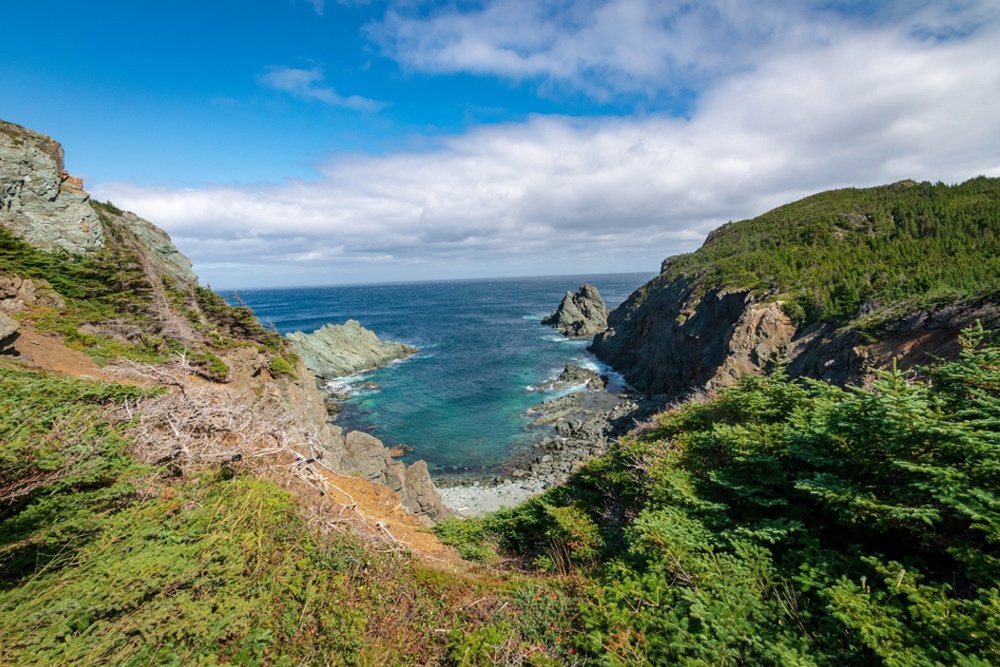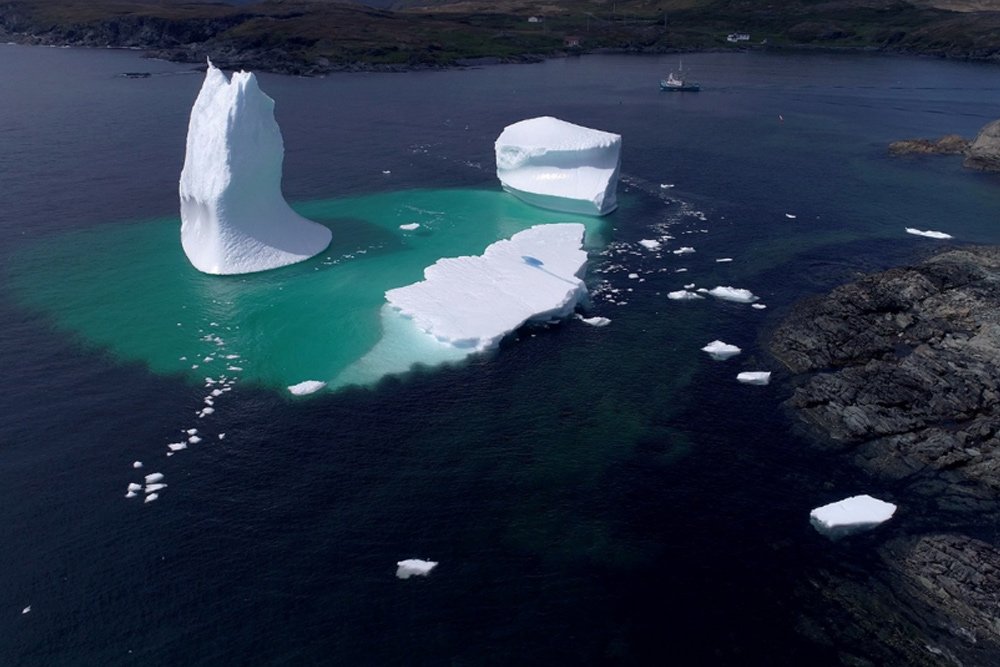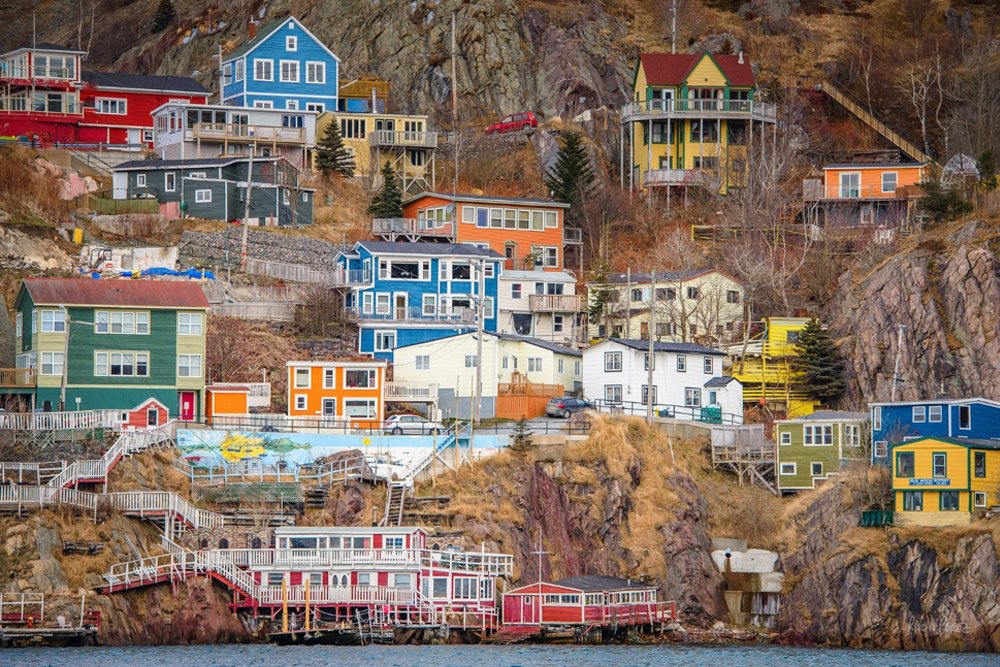
Overlanding in Newfoundland: Everything You Need to Know About Getting There, Trailing, Camping & Off-Roading in the 4Runner
Part of the Exploring Canada Series
Standing on the cliff-edge of a fjord feeling like you are staring out at the ends of the world, icebergs, whales, Vikings, spectacular scenery and lots of moose…
It’s easy to see why Newfoundland is on the bucket list for multitudes of overlanders world-wide.
The island province sits in the Atlantic Ocean on the east side of Canada and the mainland portion, Labrador, triangular-shaped, is bounded by the ocean on one side and Quebec on the other two.
Getting to Newfoundland

For overlanders, there are three options for getting to “the Rock” as Newfoundland is affectionately known and all involve ferry travel.
Newfoundland really only has one main highway which travels east to west so depending on where you plan to head, this helps determine which port you land in.
A ferry from Sydney, Nova Scotia travels to the southeast and southwest corners of the province. It’s a 7-hour, 110-mile journey to Port aux Basques in the southwest and a 16 hour, 323-mile journey to Argentia on the southeast coast.
Reservations are highly recommended.
- Current Ferry Crossing Rates: Check Rates
The third option is crossing over at the northwest tip of the province as a ferry runs between St. Barbe in Newfoundland and Blanc Sablon in Quebec.
Much shorter in length at 22 miles, the crossing takes just under two hours. This is a great option for one of the crossings if you wish to explore Labrador as well (more on Labrador later).
- Current Ferry Crossing Rates: Check Rates
Traveling in Newfoundland

As mentioned, there is one main highway, the Trans-Canada Highway which runs from Port aux Basques to St. John’s.
All other roads, heading both north and south run off this route so depending on a traveler’s itinerary, there can be some out and back driving involved. That said, a great option is to do a large loop by taking the ferry to Argentia, driving across the province west to east, then heading to the northwest tip of the island and crossing over into Labrador.
From here, follow the Labrador Highway into Quebec and then back south.
Labrador in Newfoundland
I promised a bit more on Labrador. The mainland portion of the province consists of towering mountains, massive rock faces and a multitude of lakes and rivers. The Trans-Labrador Highway is 700 miles in length with all but 125 miles paved. It is a barren and remote landscape but the province does offer a free satellite phone loan service.
For those who enjoy fishing for dinner, just about every river or stream that crosses the highway holds nice-sized trout!
In the north of Labrador and accessed by plane or boat only, Torngat Mountains National Park offers some spectacular scenery in an area that rarely sees visitors.
Those wishing to explore here are advised to travel with a trained Inuit polar bear guard.
- Torngat Mountains Basecamp: Check Details
Parks for Exploration

Newfoundland holds two National Parks, Gros Morne and Terra Nova and three wilderness reserves, Little Grant Lake, Bay du Nord and the Avalon Wilderness Reserve.
While roads come close to the wilderness reserves, none actually enter any of them, so hiking and bushwhacking are required for exploration. The National Parks are just the opposite, with roads snaking throughout allowing access to attractions, camping and hiking trails.
In fact, Gros Morne is a UNESCO Heritage Site and the scenery is absolutely spellbinding. One could spend a week in the park alone and not tackle all the hiking trails.
Iceberg Alley

Iceberg Alley is the name given to the stretch of coast from Labrador to the southeast coast of Newfoundland where icebergs pass every spring.
The most popular places along the shore, all accessible by vehicle, are St. Anthony, La Scie, Twillingate, Fogo Island, Change Islands, Bonavista, St John’s/Cape Spear and Bull’s Bay/Witless Bay.
While the icebergs begin to move in April, often they can be locked in sea ice so late-May through early-June offers the best viewing opportunities.
Whale-Watching + Wildlife Viewing

Newfoundland also offers excellent whale-watching opportunities and typically June through August, again along the same route as iceberg alley is the place to be for your chance to see one of these giant mammals.
The province is home to around 125,000 moose and this requires travel at a slower pace as most highways in the province go through moose habitat.
You’ll see plenty of moose and visitors are asked to avoid traveling at night if at all possible. If you’re lucky, you may catch sight of black bear, caribou or lynx and throughout the summer, seabirds can be spotted along the rugged shoreline.
Places to See, Things To Do

For those who enjoy hiking, there are plenty of excellent scenic locations to check out in addition to the National Parks.
The Appalachian Trail runs up the west side and the East Coast Trail up the east side of Newfoundland and while the Appalachian has longer, more difficult sections, the East Coast Trail offers some amazing day-hikes.
Attractions Along the Appalachian Trail + East Coast Trail:
- Spout (Wave-Driven Geyser)
- 165-foot suspension bridge at La Manche
- Waterfalls
- Sea Stacks
- Abandoned Coastal Villages
A growing trend on the island is cove hiking and the south shore of Newfoundland features some exceptional vistas. There are no trails, this is exploration at its wildest. Head to Burgeo and start exploring.
Those on the hunt for natural attractions will find plenty.
Highlights include Arches Provincial Park, the Blanche Brook Fossil Site, Pissing Mare Falls, Rattling Brook Falls, The Rattler and the Whale Cave. There is also no shortage of unique lighthouses, museums and heritage centers.
Earlier I mentioned Vikings and at the northwest tip of the island is the L’Anse aux Meadows National Historic Site, one of the first Viking settlements, over 1,000 years old! Just down the road, Norstead is a recreated Viking port of trade with a replica of the Snorri, Erickson’s ship.
Anglers will have a field day in the oceans, lakes and rivers of Newfoundland. Arctic char, brown trout, landlocked salmon, lake trout, northern pike, rainbow trout and salmon can all be found in abundance here.
Colorful Coastal Villages

Soaking in the local culture is one of the favorite things to do when overlanding and Newfoundland offer plenty. Head to the coast and visit fishing villages, Twillingate and the Fogo Islands are two worthwhile destinations or check out the brightly painted houses throughout the province. And really, you will be in awe of the landscapes as soon as you disembark from the ferry.
Helpful Tools for Overland Travel in Newfoundland

inReach was acquired by Garmin a couple of years ago and when traveling well off the beaten path, especially through Labrador, this can be an essential piece of kit to stay in touch globally, being able to send and receive text messages, navigate your route, track and share your journey and trigger an SOS in an emergency.
- Current inReach Pricing + Plans: Check Rates
- InReach Mini: Check Today’s Price
A Must-Have Overlanding Accessory: Portable Fridge/Freezer

A 12v fridge/freezer has become more of a necessity than want with overlanders and ARB makes a great product for keeping your food and drinks from spoiling while traveling. It’s also a good place to keep your fresh-caught fish (just wrap them really well) that you’ve caught along your travels.
Find It On Amazon:
- ARB Fridge/Freezer Pull-Out/Mount Options: Check Price
- Dometic CFX28 12v Electric Powered Cooler, Fridge Freezer: Check Price
Remote travel requires overlanders to carry extra supplies of fuel and water and RotopaX containers are the perfect way to do so. Fuel containers come in 4 sizes from 1.5 to 4.5 gallons while the water units come in three sizes between 1 and 2 gallons.
Find It Online:
- RotopaX Water Storage Containers: Check Price
- RotopaX Fuel Storage Containers: Check Price
Planning Your Trip

Have I stimulated your interest in visiting “The Rock”?
If so, check out the Province’s website.
For those who want to explore off the beaten track, visit BackroadMapbooks.com.
Here you will find the Canadian version of the Delorme Gazetteer but with even more adventure information. Pick up a map book for Newfoundland and Labrador and begin planning your adventure.



I used to live in Labrador (Goose Bay) back in the early 90’s, way before the Trans Labrador Highway was considered a grade A gravel road as it is today. Back then it was at best a cart path and I used to travel it in a Pontiac Trans Am to Churchill falls dam for Ouananiche fishing….
Nice scenery at some locations but frustrating living there. I would hunt and fish in Davis Inlet and up further in Nain. Good caribou hunting also, just hated the massive amounts of mosquitoes and black flies.
Good job Colin! I toured the entire island and drove the Trans Labrador Highway years ago and it was an awesome trip. We were in my 2002 4R with two 16’ canoes on the rack. Awesome people those Newfoundlanders, so friendly and authentic. Make sure to get “Screeched In” by them and be ready with an extra spare tire or a good repair kit if you drive the TLHY. There are many stretches over 200 miles with no service!
It’s the first trip I’m taking when I retire as I want at least four weeks on the “rock” plus time on the Trans-Labrador/Northern Quebec. My friend had his driveshaft snap and spin around and take out the transmission on his Land Rover while in NFLD. It was an expensive tow back to Toronto